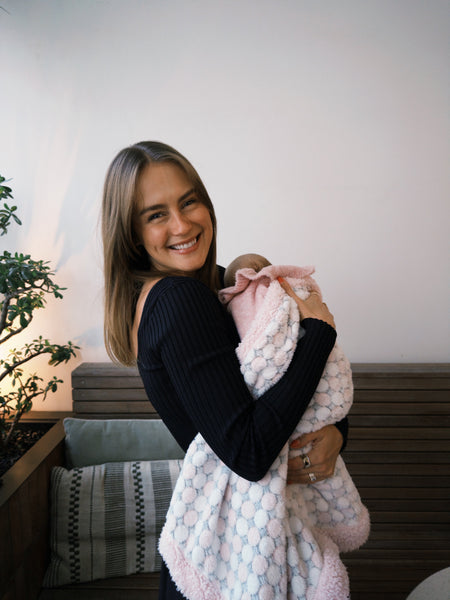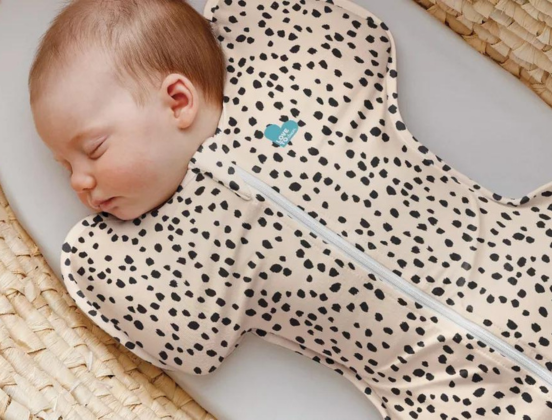Fortunately milk has a sleep-inducing effect so feeding your child should help her to return to sleep shortly afterwards even if it is only for a short time, & in the early days of a baby’s life it is useful for breastfeeding mothers to feed every 2-3 hours to encourage milk production & maintain a good supply.
Feeding during the night can gradually be reduced as babies eat more during the day but this can only happen if a baby grows well & gains weight steadily. A weight of about 6-8 kilograms is usually needed for a baby to be mature enough to cultivate longer sleep cycles.
Other things that can affect your baby’s sleeping habits & create night waking include:
Your baby’s current state of health & health history
It goes without saying that babies will generally sleep less well when they are sick or colicky, Babies are prone to catching lots of simple illnesses because of the delicacy of their immature immune, & will find it harder to settle & stay asleep because of something as simple as a cold.
Besides the common cold, ear infections are also common in babies and are made worse during sleep when pressure builds up due to mucus & other fluids gathering in the ear while lying down in a vertical position. These infections can develop on their own or as the result of a cold, & because sucking & swallowing cause pain, babies may also feed badly when they have ear infections which can have the knock-on effect of making them more likely to wake up from hunger during the night (even when they have started solids).
Similarly gastroesophageal reflux prevents babies from feeding well because of the pain caused by stomach acids being regurgitated into the baby’s esophagus, instigated by intolerances to dairy or lactose. Gastroesophageal reflux is also exacerbated by lying down & needs to be resolved by dietary changes & medications such as antacids. For this reason babies with reflux often sleep easier in baby slings than in a cot because they are being held upright which is more comfortable for their condition. Additionally colic is sometimes misdiagnosed when gastroesophageal reflux is actually the problem, & vice versa.
Teething
Teething can begin in babies as early as 5 months starting with the two central incisors on the lower gums followed by the same two teeth on the upper gums. For this reason your baby may be in pain & can also become uninterested in eating & breastfeeding, because both these things cause blood to rush to the swollen area, making it even more sensitive, resulting in your baby waking at night due to hunger in addition to her pain.
Growth spurts
Growth spurts commonly occur at several times in the first 12 months – first at about 7-10 days after being born, then between 3-6 weeks, & at 3, 6, & 9 months of age & babies need more hours of sleep for these growth spurts to take place but they will still need to feed constantly throughout a 24 hour period (which is referred to as cluster feeding), & will wake up more at night for this reason.
Increased motor development
Developmental milestones such as crawling & walking have the ability to disrupt a baby’s sleep pattern because these new motor skills may cause babies to move around more while sleeping, so that they kick off their bedding & get cold, or otherwise wake themselves up, especially during REM sleep.
Wet nappies and/or nappy rash
Soiled nappies are always best to be changed at any time during the night but deciding whether or not to change a wet nappy depends on whether a wet nappy makes it more difficult for your baby to stay asleep.
Nappy rash is usually due to one of 4 reasons – irritation, diarrhea, teething (because teething produces more stomach acid which leads to diarrhea) or food allergies/intolerances. If a baby is waking up or sleeping poorly because of discomfort caused by having a wet nappy or nappy rash, nappies should be changed at night until the rash subsides.
When nappy rash is linked to food intolerances & allergies (which is why it can coincide with starting solids) parents can determine if this is the case by checking for symptoms such as rashes or eczema on other parts of the body, itchy or red eyes, runny nose, wheezing, swelling, bloating, diarrhea & constipation.
Facts verified by Jo Ryan, child sleep expert at Babybliss and a registered nurse of 20 years experience, with much of that time spent working in paediatrics.






